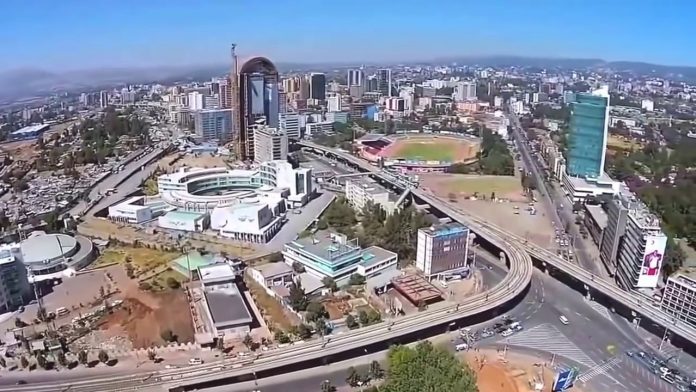Economy in Ethiopia: BY TYLER COWEN: Will Ethiopia become “the China of Africa”? The question often comes up in an economic context:
Ethiopia’s growth rate is expected to be 8.5 percent this year, topping China’s projected 6.5 percent. Over the past decade, Ethiopia has averaged about 10 percent growth.
Behind those flashy numbers, however, is an undervalued common feature: Both countries feel secure about their pasts and have a definite vision for their futures. Both countries believe that they are destined to be great.
Ethiopia gets Sh. 700 billion foreign investments as Kenya gets Sh. 200 billion
Consider China first. The nation-state, as we know it today, has existed for several thousand years with some form of basic continuity.
Most Chinese identify with the historical kingdoms and dynasties they study in school, and the tomb of Confucius in Qufu is a leading tourist attraction. Visitors go there to pay homage to a founder of the China they know.
This early history meant China was well-positioned to quickly build a modern and effective nation-state, once the introduction of post-Mao reforms boosted gross domestic product.
That led to rapid gains in infrastructure and education, and paved the way for China to become one of the world’s two biggest economies. Along the way, the Chinese held to a strong vision that it deserved to be a great nation once again.
My visit to Ethiopia keeps reminding me of this basic picture. Ethiopia also had a relatively mature nation-state
quite early, with the Aksumite Kingdom dating from the first century A.D. Subsequent regimes, through medieval times and beyond, exercised a fair amount of power.
Most important, today’s Ethiopians see their country as a direct extension of these earlier political units. Some influential Ethiopians will claim to trace their lineage all the way to King Solomon of biblical times.
In other words, the process of organized, national-level governance has been underway for a long time.
It was this relative strength of Ethiopian governance that allowed the territory to fend off colonialism, a rare achievement.
It is also why, when you travel around the country, a lot of the basic cuisine doesn’t change much: Dishes are seen as national and not regional.
It is thus no surprise that once Ethiopia abandoned its 1970s communist ideology and put some basic reforms into place, its government was able to rise to the occasion.
The infrastructure is remarkably good by regional standards, and the Ethiopian government is known for conducting a relatively successful industrial policy.
The state-owned Ethiopian Airlines is run as a responsible business, it is becoming a major air power, and standards of service are high.
The Ethiopians I have interacted with express a remarkable degree of enthusiasm for their country and culture.
Maybe that isn’t unusual in a rapidly growing nation, but I’ve been struck by how historically rooted these sentiments have been.
Ethiopians are acutely aware of their past successes, including their role in biblical history. Like many Iranians, they think of themselves as a civilization and not just a country.
They very self-consciously separate themselves from the broader strands of African history and culture. And, as in China, they hold an ideological belief that their country is destined to be great again.
China and Ethiopia intersect in yet another way, with the Chinese helping to build the place up.
There are new and modern apartment buildings scattered around Addis Ababa, built by the Chinese, a light rail system in Addis that would look nice in any country, impressive dams for hydroelectric power, and a high-speed rail connection to Djibouti and the coast.
The pride of Ethiopians in their history and freedom from colonialism may help explain why the nation has accepted so much Chinese infrastructure involvement with little evidence of the angst that has plagued some other parts of Africa.
The intuitive background assumption in Ethiopia is that foreigners may try to interfere, but the government won’t lose control.
There are prominent statues in Addis Ababa celebrating how the Ethiopians drove out both the Italians and the British.
Just to be clear, Ethiopia is hardly a finished nation-state. There are festering disputes with Eritrea to the north, a place many Ethiopians strongly feel belongs to them.
The southern and more tribal parts of the country are not always well integrated into the major commercial centers ruled by the highlanders, and there are clashes with the Oromia and Somali regions to the east. For those reasons, the national optimisms found in the better developed parts of the country are not found everywhere.
That said, if you are looking for a special place in Africa, Ethiopia may be your best bet. But to understand its recent success, you have to go beyond policy — it is also a matter of their history, their confidence and, above all, their ideas. Economy in Ethiopia. Economy in Ethiopia.









